 Today Hangzhou, China will reach a sizzling 36 degrees Celsius (that’s 97 degrees Fahrenheit). When the weather heats up, I love nothing better than curling up with a good book during the summer.
Today Hangzhou, China will reach a sizzling 36 degrees Celsius (that’s 97 degrees Fahrenheit). When the weather heats up, I love nothing better than curling up with a good book during the summer.
I’ve featured so many great books over the years, and many of them could be the perfect companion to your summer this year.
So whether you’re chilling out on the beach or cooling down indoors, here’s my list of recommended summer reads I’ve featured here on the blog, listed in alphabetical order according to the author’s last name. (P.S.: These titles are linked to Amazon, where your purchases help support this blog.)
 #1: “There’s Something I Want to Tell You: True Stories of Mixed Dating in Japan” by Yuta Aoki
#1: “There’s Something I Want to Tell You: True Stories of Mixed Dating in Japan” by Yuta Aoki
Yuta Aoki’s book shares the stories of 15 different people spanning 8 nationalities who dated Japanese locals, and explores the cultural dynamics. Learn more through my interview with Yuta.
 #2: “Good Chinese Wife” by Susan Blumberg-Kason
#2: “Good Chinese Wife” by Susan Blumberg-Kason
When it comes to the success of a cross-cultural relationship, does culture or personality matter more? Susan Blumberg-Kason’s gripping memoir “Good Chinese Wife: A Love Affair With China Gone Wrong” offers a very personal answer to that question. Learn more through my interview with Susan.
 #3: “Tone Deaf in Bangkok” by Janet Brown
#3: “Tone Deaf in Bangkok” by Janet Brown
It’s never too late to follow your heart to Asia. Just ask writer Janet Brown, who went to Thailand at age 45 and fell in love with the people and places. Learn more through my interview with Janet.
 #4: “Up to the Mountains and Down to the Countryside” by Quincy Carroll
#4: “Up to the Mountains and Down to the Countryside” by Quincy Carroll
This novel explores the clash between two Americans (a deadbeat and an idealist) teaching English in China, and the student who comes between them. Learn more through my interview with Quincy.
 #5: “The Reluctant Brides of Lily Court Lane” by Susan Chan
#5: “The Reluctant Brides of Lily Court Lane” by Susan Chan
“The Reluctant Brides of Lily Court Lane” is an easy breezy love story that reads like one of my favorite romantic comedies on the screen. Learn more through my interview with Susan.
 #6: “Tiger Tail Soup” by Nicki Chen
#6: “Tiger Tail Soup” by Nicki Chen
In “Tiger Tail Soup”, Nicki Chen transports us to a place you don’t often find in wartime China literature – Fujian Province’s Gulangyu Island. Learn more through my interview with Nicki.
 #7: “A Bollywood Affair” by Sonali Dev
#7: “A Bollywood Affair” by Sonali Dev
“A Bollywood Affair” is such a unique and enchanting book that, even if you’ve sworn off the romance genre, you must read it. Learn more through my interview with Sonali.
 #8: “The Girl Who Wrote in Silk” by Kelli Estes
#8: “The Girl Who Wrote in Silk” by Kelli Estes
“The Girl Who Wrote in Silk” by Kelli Estes links two women across centuries to a silk embroidered sleeve in a story of love, courage and humanity. Learn more through my interview with Kelli.
 #9: “Love Me Anyway” by Tiffany Hawk
#9: “Love Me Anyway” by Tiffany Hawk
Tiffany Hawk offers an inside look into being a flight attendant — along with some AMWF romance — in her coming-of-age debut novel, “Love Me Anyway.” Learn more through my interview with Tiffany.
 #10: “Pearl River Drama: Dating in China” by Ray Hecht
#10: “Pearl River Drama: Dating in China” by Ray Hecht
Ray doesn’t shy away from letting you into his utterly imperfect love life, and ultimately he comes across as a genuinely nice foreign guy just looking for love in China. Learn more through my interview with Ray.
 #11: “South China Morning Blues” by Ray Hecht
#11: “South China Morning Blues” by Ray Hecht
Through 12 viewpoints, South China Morning Blues takes readers on a tour of the underside of the expat scene in China. It’s a fresh take on modern China. Learn more through my interview with Ray.
 #12: “The Porcelain Thief” by Huan Hsu
#12: “The Porcelain Thief” by Huan Hsu
“The Porcelain Thief” deftly combines Huan Hsu’s personal experiences as a Chinese American in China, family stories, and his quest for buried porcelain. Learn more through my interview with Huan.
 #13: “A Field Guide to Happiness” by Linda Leaming
#13: “A Field Guide to Happiness” by Linda Leaming
Linda Leaming’s new book “A Field Guide to Happiness: What I Learned in Bhutan about Living, Loving, and Waking Up” reads like a love letter to Bhutan. Learn more through my interview with Linda.
 #14: “Here Comes the Sun: A Journey to Adoption in 8 Chakras” by Leza Lowitz
#14: “Here Comes the Sun: A Journey to Adoption in 8 Chakras” by Leza Lowitz
Leza Lowitz shares her emotional journey towards marriage and motherhood in Japan (as well as opening a yoga studio in Tokyo) in “Here Comes the Sun”. Learn more through my interview with Leza.
 #15: “My Japanese Husband Thinks I’m Crazy” & #16: “My Japanese Husband (Still) Thinks I’m Crazy” by Grace Mineta
#15: “My Japanese Husband Thinks I’m Crazy” & #16: “My Japanese Husband (Still) Thinks I’m Crazy” by Grace Mineta
If you’re a fan of graphic novels and you’re curious about Japan, you don’t want to miss these charming comics by Grace Mineta. Learn more through my interviews (here and here) with Grace.
 #17: “Parsley & Coriander” by Antonella Moretti
#17: “Parsley & Coriander” by Antonella Moretti
“Parsley & Coriander” is a delightful novel that captures the spirit of finding your own path in China, especially as an expat woman. Learn more through my interview with Antonella.
 #18: “Everything I Never Told You” by Celeste Ng
#18: “Everything I Never Told You” by Celeste Ng
“Everything I Never Told You” by Celeste Ng is a dark, powerful tale of an AMWF family in America facing a tragedy. Learn more through my interview with Celeste.
#19: “The Empress of Bright Moon” by Weina Dai Randel
Weina Randel has crafted a beautifully written, engaging and suspenseful tale of how one of the greatest rulers in China came to rise. You can learn more about this second chapter of the duology by reading Weina’s guest post on sex education during Tang Dynasty China.
 #20: “The Moon in the Palace” by Weina Dai Randel
#20: “The Moon in the Palace” by Weina Dai Randel
“The Moon in the Palace” by Weina Dai Randel, about the rise of China’s young Empress Wu, truly reads like a Tang Dynasty-era Cinderella story. Learn more through my interview with Weina.
 #21: “The Secret of the Nightingale Palace” by Dana Sachs
#21: “The Secret of the Nightingale Palace” by Dana Sachs
The romance at the heart of this novel — which relates to its intriguing title — just stole my heart away. Plus, the book explores a side of World War II that we all too often forget — the US internment of Japanese Americans. Learn more through my interview with Dana.
 #22: “The Good Shufu” by Tracy Slater
#22: “The Good Shufu” by Tracy Slater
“The Good Shufu” by Tracy Slater is a heartfelt story about love & life abroad that proves sometimes those unexpected detours lead us to incredible joy. Learn more through my interview with Tracy.
 #23: “Empire of Glass” by Kaitlin Solimine
#23: “Empire of Glass” by Kaitlin Solimine
“Empire of Glass” is stunning for its lyrical prose and unique in that it’s presented as a “translation” of the story of Li-Ming and her husband Wang. Learn more through my interview with Kaitlin.
 #24: “Big Little Man: In Search of My Asian Self” by Alex Tizon
#24: “Big Little Man: In Search of My Asian Self” by Alex Tizon
Alex Tizon’s memoir “Big Little Man: In Search of My Asian Self” offers a personal view on Asian masculinity in the West — and is a book you must read. Learn more through my interview with Alex.
 #25: “Red Envelope” by Atom Yang
#25: “Red Envelope” by Atom Yang
Thanks to Atom Yang’s exceptional writing and sense of humor, Red Envelope is a fun, romantic romp through the most wonderful time of the year for Chinese. Learn more through my interview with Atom.
 #26: “Ferry Tale: A Hong Kong Love Story” by Shannon Young
#26: “Ferry Tale: A Hong Kong Love Story” by Shannon Young
It’s as enchanting as any big-screen rom com – but better, thanks to the Hong Kong setting and charming AMWF couple. Learn more through this post on Ferry Tale.
 #27: “How Does One Dress to Buy Dragonfruit? True Stories of Expat Women in Asia” edited by Shannon Young
#27: “How Does One Dress to Buy Dragonfruit? True Stories of Expat Women in Asia” edited by Shannon Young
For me, this is the rarest of all anthologies. I actually devoured it from cover to cover in record time, and found something to love in all the essays — regardless of the story. You’ll also find my essay “Huangshan Honeymoon” featured in this collection. Learn more about my essay and 12 other essays you’ll want to read.
 #28: “Year of Fire Dragons” by Shannon Young
#28: “Year of Fire Dragons” by Shannon Young
“Year of Fire Dragons” details the life-changing year Shannon Young spent in Hong Kong while in a long-distance relationship with her Eurasian boyfriend. Learn more through my interview with Shannon.
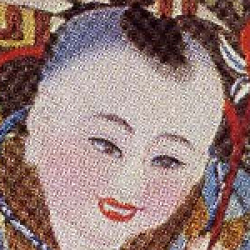


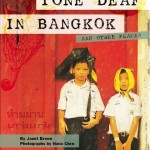







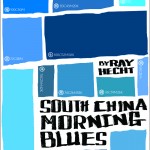


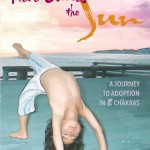




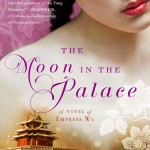

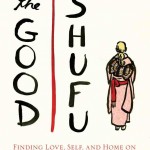






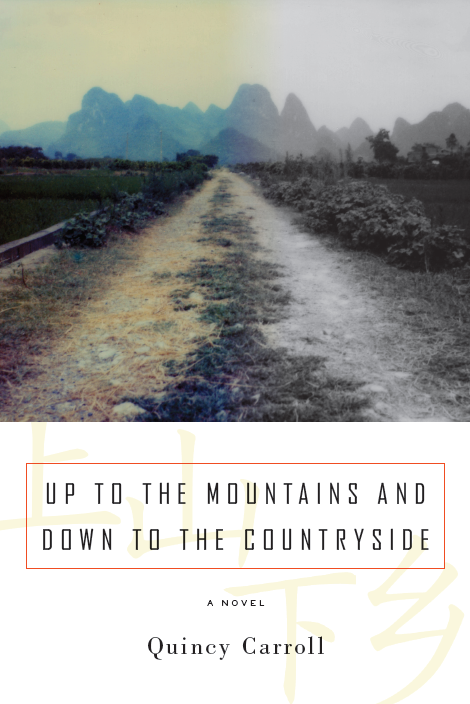
 Here’s
Here’s